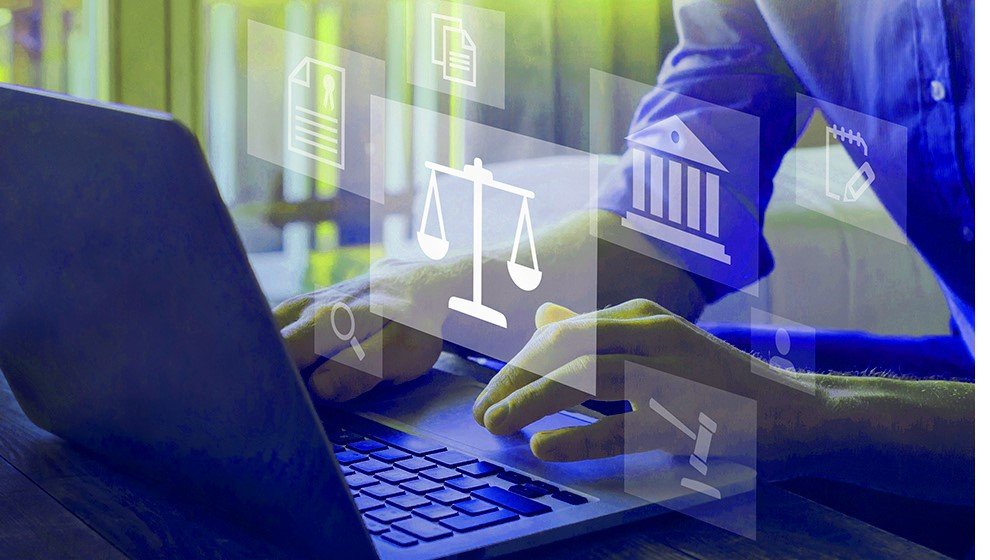Trends and New Ideas in Legal Technology

Evolution of Legal Technology
The evolution of legal technology has been remarkable, progressing from basic document management systems to sophisticated solutions that enhance the efficiency and effectiveness of legal professionals.
Automation in Legal Processes
A significant trend in legal technology is the automation of routine legal tasks. This allows legal practitioners to redirect their focus from mundane activities to more complex and strategic aspects of their work.
Artificial Intelligence in Legal Research
Artificial Intelligence (AI) is making a substantial impact on legal research. By leveraging AI algorithms, legal professionals can now expedite the analysis of cases and statutes, significantly reducing the time spent on research.
Blockchain for Secure Legal Transactions
Blockchain technology is gaining prominence for ensuring secure and transparent legal transactions. By providing an immutable record of contracts and agreements, it enhances trust and eliminates the need for intermediaries.
Cloud-Based Legal Management
Cloud-based platforms have revolutionized legal management systems. Offering accessibility, collaboration, and real-time updates, these platforms empower legal professionals to streamline their workflow and enhance client service.
Cybersecurity in the Legal Sector
As legal processes increasingly transition into the digital realm, cybersecurity has become a top priority. Protecting sensitive client information and maintaining the integrity of legal data is paramount in the face of evolving cyber threats.

Virtual Law Firms: A Modern Approach
The rise of virtual law firms challenges traditional office setups. Virtual law firms allow legal professionals to work remotely, breaking geographical barriers and efficiently serving clients on a global scale.
Read More: The Future of Legal Technology: Trends and Developments to Watch
Remote Collaboration Tools for Legal Professionals
With the paradigm shift towards remote work, collaboration tools tailored for legal professionals have become indispensable. These tools facilitate seamless communication, document sharing, and efficient teamwork among legal teams.
E-Discovery Enhancements
Advancements in E-Discovery tools have simplified the identification and retrieval of electronically stored information. This streamlining of the litigation process not only saves time but also enhances the accuracy of legal proceedings.
Predictive Analytics for Case Outcomes
Legal professionals are increasingly leveraging predictive analytics to assess potential case outcomes. By analyzing historical data, predictive analytics provides insights that enable more informed decision-making, ultimately improving the chances of success in legal proceedings.
Chatbots in Legal Consultations
The integration of chatbots in legal consultations is transforming how individuals seek legal advice. These AI-driven chatbots provide instant responses to common queries, making legal information more accessible and timely.
Mobile Applications for Legal Practitioners
The advent of mobile applications tailored for legal practitioners has revolutionized the way legal professionals manage their work. These applications offer convenience, allowing lawyers to manage cases, communicate with clients, and access legal resources on the go.
Integrating Virtual Reality in Legal Education
The integration of Virtual Reality (VR) in legal education is providing immersive learning experiences for law students. Simulating real-world legal scenarios, VR enhances practical skills and prepares students for the dynamic nature of legal practice.
Future Prospects and Challenges
Looking ahead, the article explores the prospects of legal technology and the challenges that may arise in its implementation. From increased automation to emerging technologies, understanding the trajectory of legal tech is crucial for industry professionals.
Read More: The Intersection of Technology and the Law
Conclusion
FAQs
How are chatbots changing the legal consultation process?
Chatbots streamline the legal consultation process by providing instant responses to common queries and offering accessible and timely information.
What is the significance of predictive analytics in the legal field?
Predictive analytics enables legal professionals to make informed decisions by analyzing data and predicting potential case outcomes.
How does blockchain enhance the security of legal transactions?
Blockchain provides a secure and transparent platform for legal transactions by creating an immutable record that is resistant to tampering.
Are virtual law firms a sustainable model for the future?
Virtual law firms offer flexibility and global reach, making them a sustainable model for the future, especially with the increasing trend of remote work.
How can legal practitioners benefit from mobile applications?
Mobile applications for legal practitioners provide convenience, allowing them to manage cases, communicate with clients, and access resources anytime, anywhere.








